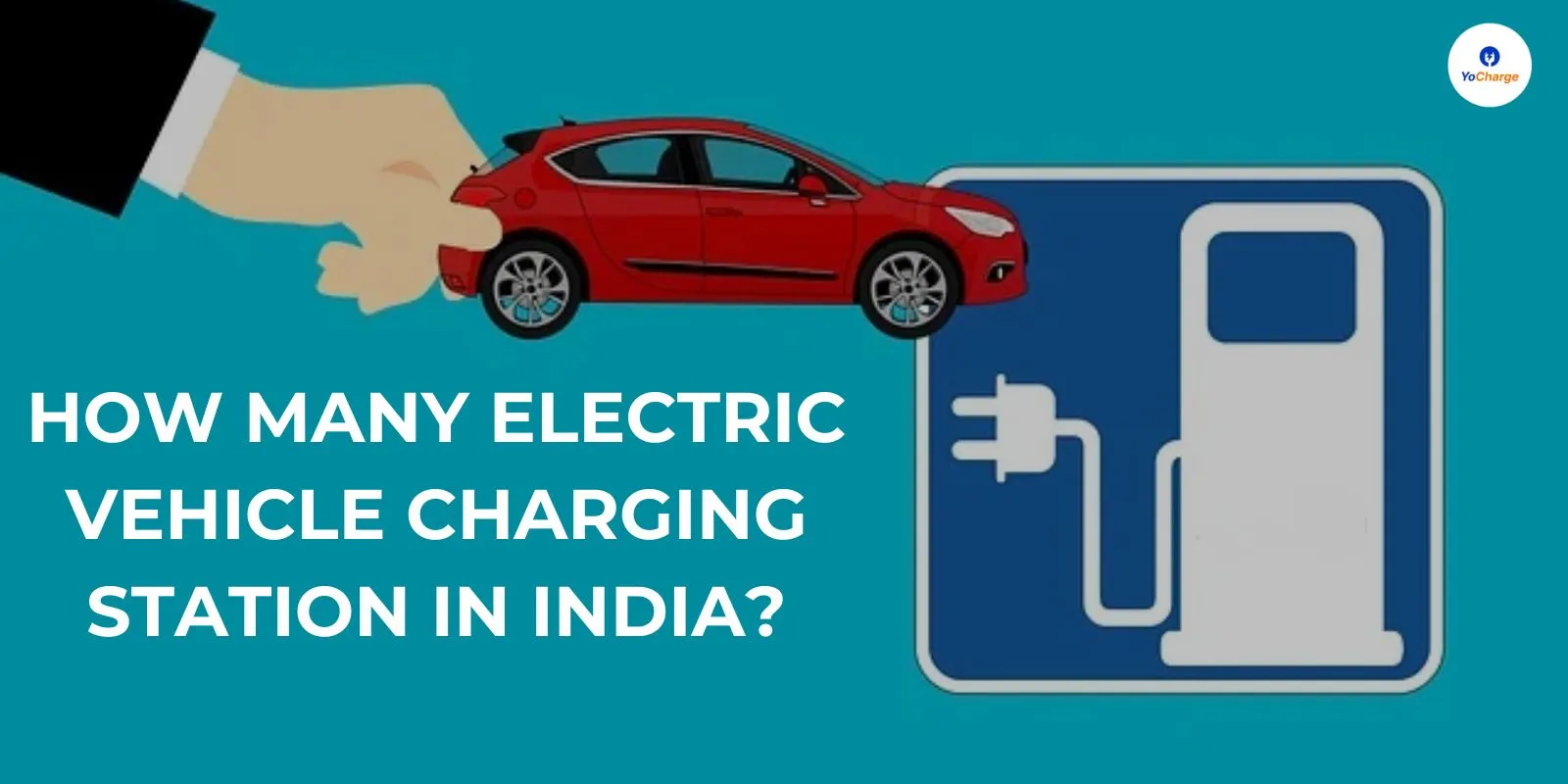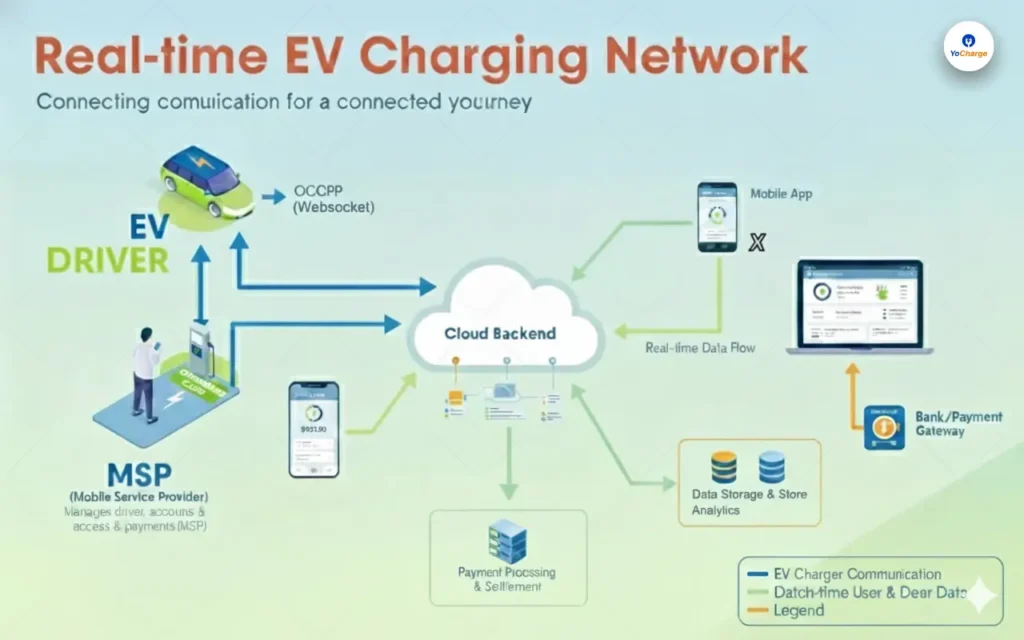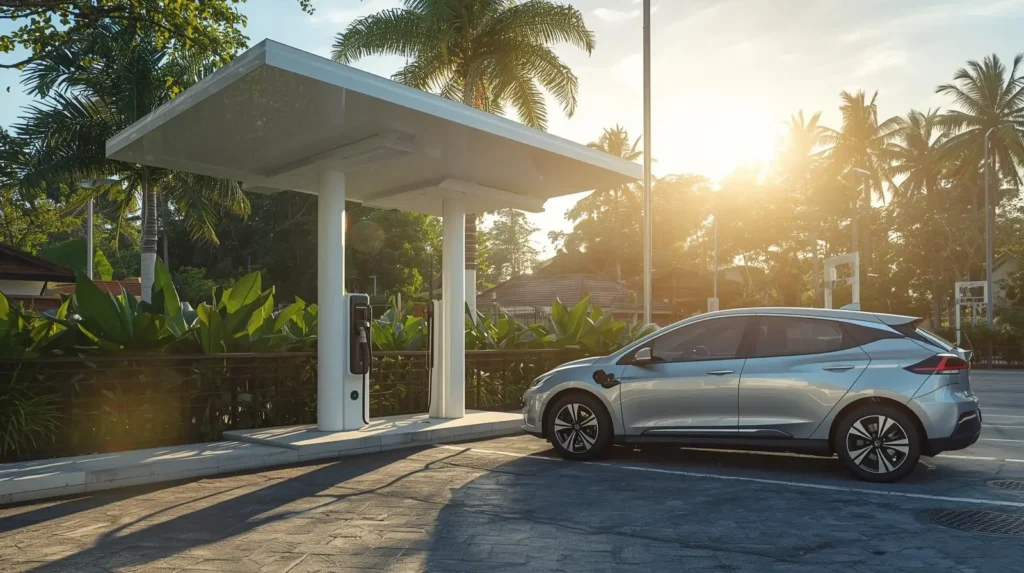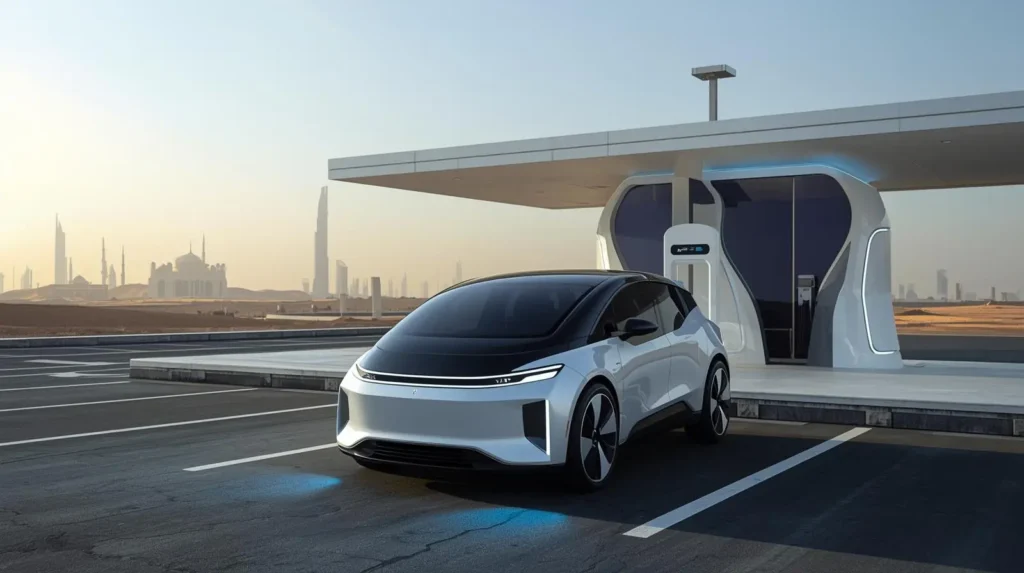India has 25,202 public EV charging stations as of December 2024, with Karnataka leading at 5,765 stations. The government aims to install 2.9 million chargers by 2030, supported by initiatives like PM E-DRIVE and FAME II.…Read ahead…

India is expanding its electric vehicle (EV) charging network rapidly to support the growing demand for sustainable transportation. As of December 2024, India has 25,202 public EV charging stations, showing a significant increase from previous years.
The growth reflects India’s strong commitment to promoting EV adoption and reducing carbon emissions.
Current Status of EV Charging Stations in India
Karnataka has the highest number of EV charging stations, with 5,765 units, followed by Maharashtra with 3,728 stations and Uttar Pradesh with 1,989 stations.
Other states like Delhi, Tamil Nadu, and Gujarat are also expanding their charging infrastructure to meet the rising number of EV users.
Most of these charging stations are located in urban areas, where demand is high. However, rural regions still lack sufficient charging points, which limits the wider adoption of electric vehicles outside major cities.
Government Initiatives to Expand EV Charging Infrastructure in India
The Indian government has launched multiple initiatives to speed up the installation of EV charging stations. The PM E-DRIVE scheme, introduced in September 2024, allocated ₹2,000 crore specifically for setting up public charging stations.
The initiative aims to overcome key challenges like land availability, power grid upgrades, and high installation costs.
Additionally, the FAME II scheme has provided ₹800 crore to Public Sector Undertaking (PSU) oil marketing companies to set up 7,432 fast-charging stations across India. This financial support has encouraged private players to invest in EV charging networks.
To further boost EV adoption, the government is offering up to 80% subsidies on infrastructure costs for charging station operators.
Many states have also introduced additional incentives and simplified approval processes to encourage more businesses to invest in EV charging infrastructure.
Also Read: Why You Should Choose a White-Label EV Charging App for Your Brand?
Challenges in Expanding EV Charging Stations in India
Despite rapid progress, India still faces several challenges in achieving a robust EV charging network. The country needs around 2.9 million public charging points by 2030 to meet its EV adoption targets.
This means installing over 350,000 charging points every year, which is a difficult task given the current pace of development.
One of the major challenges is the urban-rural divide. While cities have a growing number of charging stations, rural areas remain underserved.
Since 65% of India’s population lives in rural regions, expanding EV charging infrastructure in these areas is crucial for nationwide EV adoption.
The high cost of installing fast chargers is another obstacle. Advanced fast-charging stations require significant investment, making it difficult for private operators to expand at scale.
Additionally, the power grid in many areas is not strong enough to support a large network of fast chargers. Issues related to land acquisition and high electricity tariffs also slow down infrastructure development.
Public-Private Partnerships and Future Plans of EV in India
To overcome these challenges, India is relying on public-private partnerships. Leading EV manufacturers like Hero Electric are working with charging networks like BOLT to establish thousands of new charging stations nationwide.
BOLT alone plans to set up 50,000 charging stations in 2025, making it one of the largest private initiatives in this sector.
The government is also implementing new guidelines to ensure a dense network of charging stations in cities and along highways.
According to these guidelines, there should be one charging station every one kilometer in urban areas and fast-charging hubs every 100 kilometers on highways by 2030.
Renewable energy is another focus area. The government is encouraging charging operators to use solar power to reduce costs and promote sustainable EV charging solutions. There are also plans to introduce differential pricing, where charging during solar hours will be cheaper, making EV charging more affordable.
Also Read: How EV Trucking Fleet Management Software Helps EV Truck Fleet Owners?
Conclusion
India’s EV charging infrastructure is expanding at an unprecedented rate, but significant hurdles remain. The government’s financial incentives, strategic policies, and increasing private sector involvement are helping to build a strong foundation for widespread EV adoption.
As the network grows and more charging stations are installed in rural areas and along highways, India is moving closer to becoming a global leader in sustainable transportation infrastructure.



